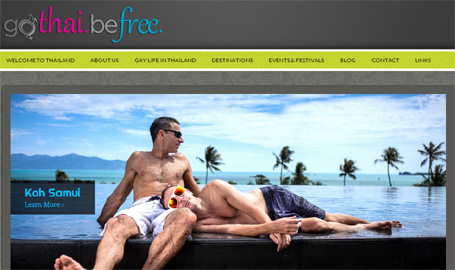In an investigative report published last week, the Bangkok Post reported that while Thailand has long been known as a desirable destination for gay and transgender travellers, the Tourism Authority of Thailand (TAT) had not had LGBT-specific advertising campaigns until recently with the launch of the "Go Thai Be Free" campaign.
The report outlined how local LGBT activists began to campaign for the passage of a civil partnership law with the Civil Partnership Act having now been reviewed five times, with public hearings have been held in all four regions of Thailand.
For the bill to pass, 20 MPs must sign in support of a public bill before it can be presented to parliament for deliberation and that has already been achieved. However the proposal is yet to be added to the House agenda due to a shortage of public support. The bill has only garnered about 4,000 of the required 10,000 signatures from members of the public to proceed.
The report continues:
In the eyes of the outsider, Thailand is a virtual paradise of tolerance. But for gay and transgender people inside the country, the picture is less idyllic.
The Foundation for Sexual Orientation and Gender Identity Rights and Justice last year interviewed 868 people who identify as gay, lesbian or transgender in Chiang Mai, Nakhon Sawan, Bangkok, Pattaya, Surat Thani, Phuket and Nakhon Ratchasima.
It found that 15% of respondents were not accepted among their own family members, while 8% were only conditionally accepted as part of the family. For nearly 13% of respondents, family members refused to let them live with a gay partner.
More than 14% had been verbally assaulted by family members, 2.5% were kicked out of the family home and 1.3% were forced to undergo psychological treatment. About 2.5% were forced to enter the monkhood, while 2.4% were physically attacked by family members and 3.3% were sexually assaulted by friends.
Naiyana Supapung, coordinator of the Teeranat Kanjanaauksorn Foundation, which works for gender and sexual justice, tells Spectrum that gay and transgender people in Thailand face silent abuse throughout their everyday lives.

